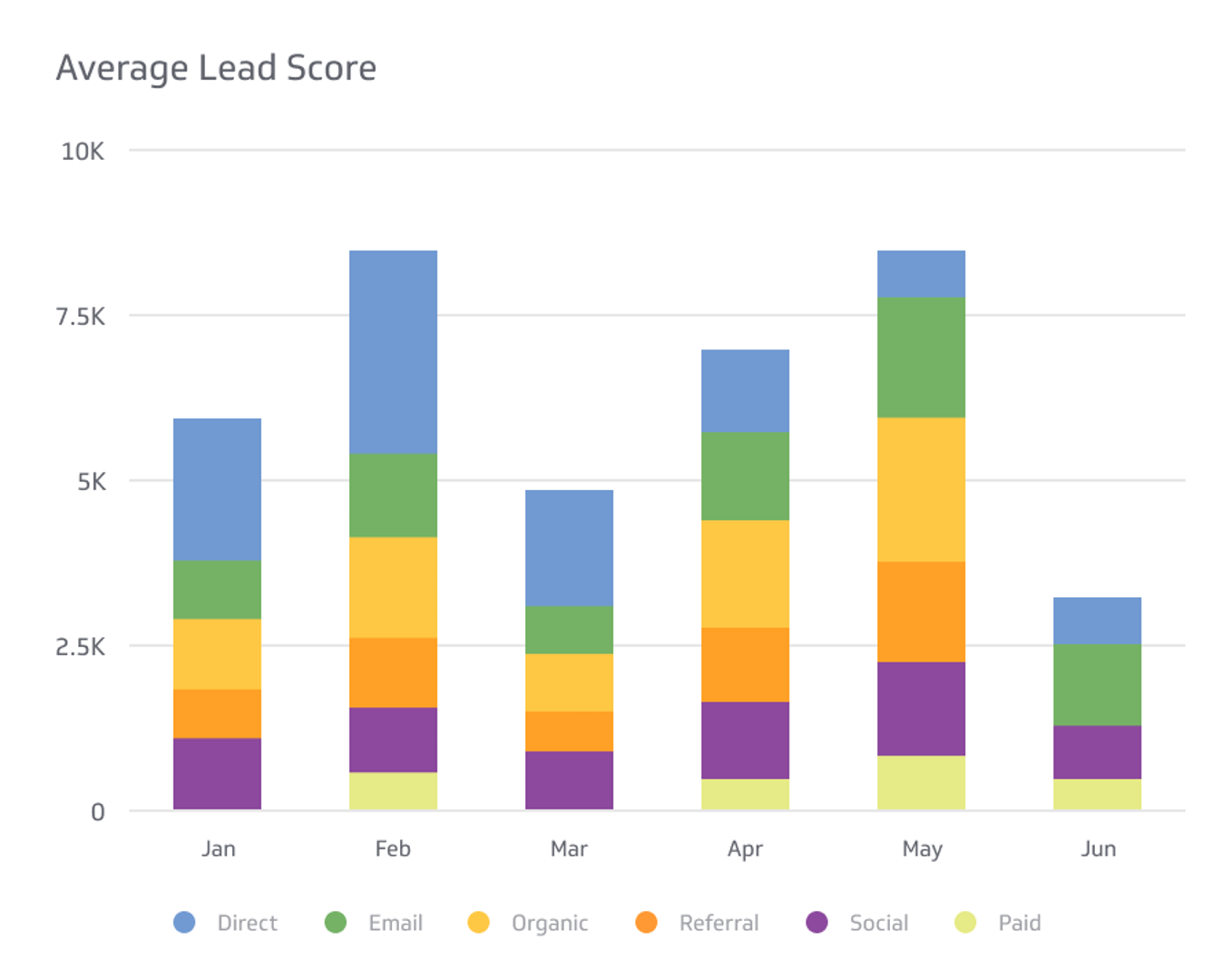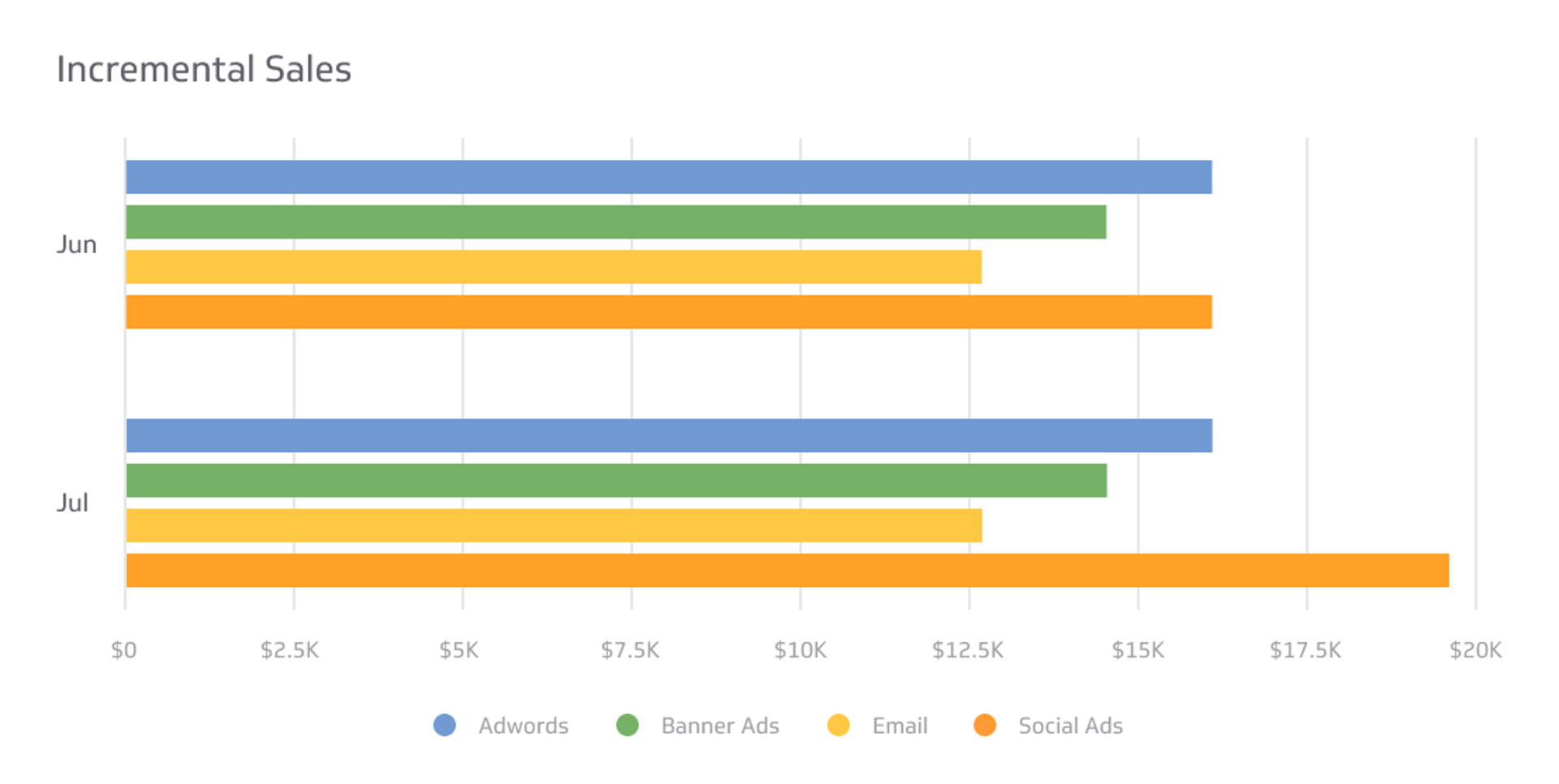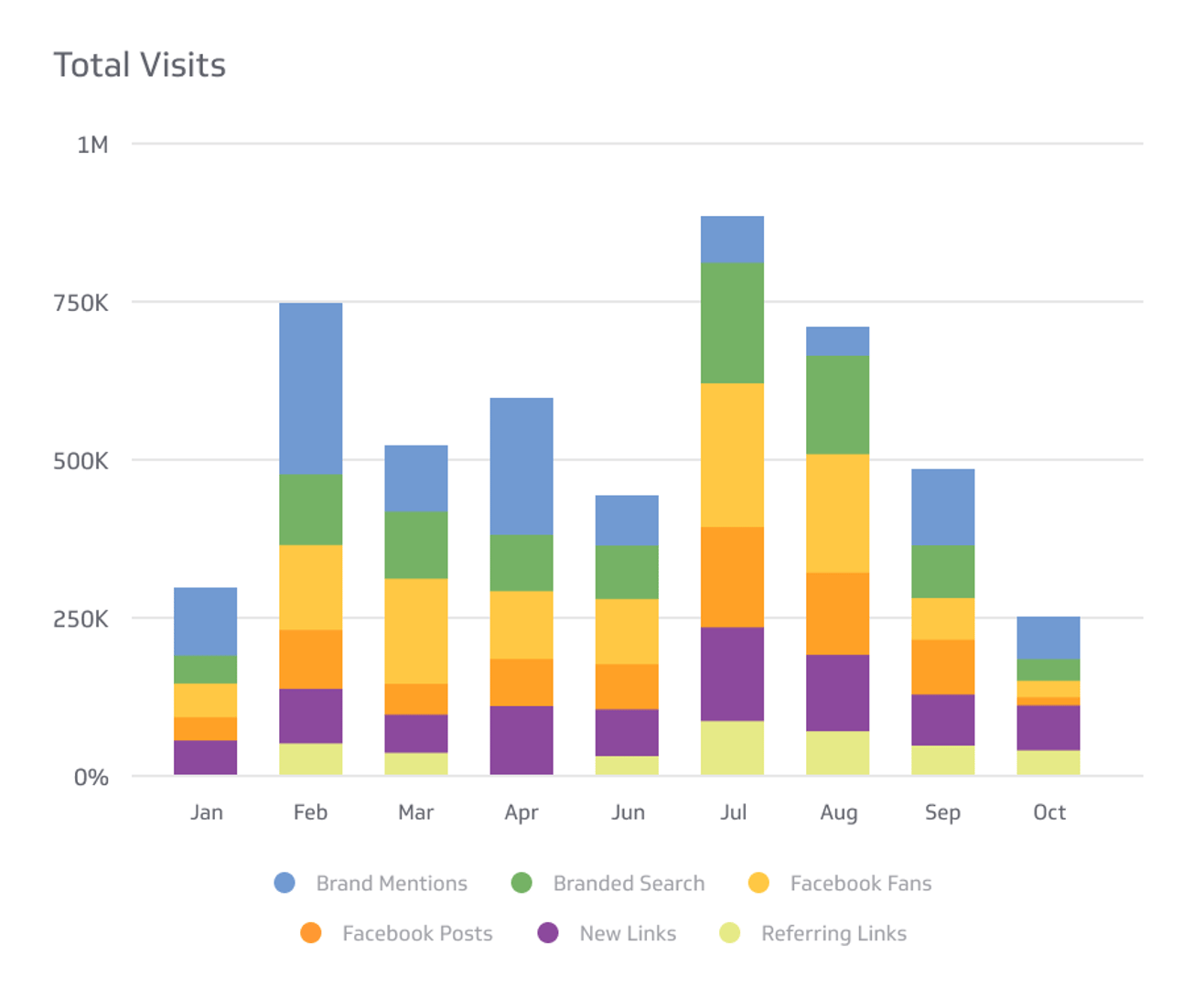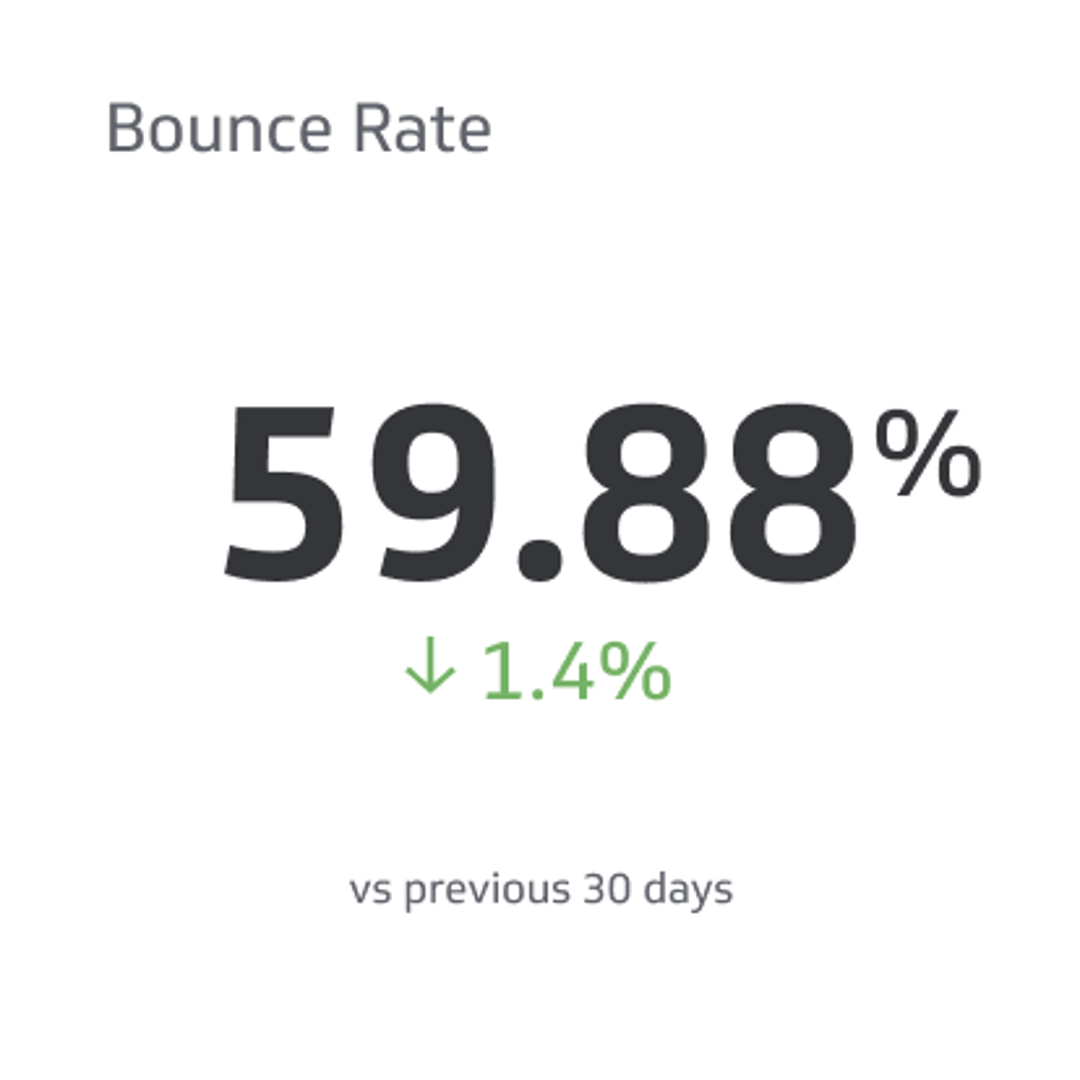Average Lead Score Metric
Focus on your best leads. It starts with this metric.
Track all your Digital Marketing KPIs in one place
Sign up for free and start making decisions for your business with confidence.

What is Average Lead Score? A Guide for Growth
Are all your marketing leads high quality? It's a tough question to answer without a system in place. That's where lead scoring comes in.
Lead scoring is the process of ranking your prospects based on their value to your business. By assigning points to leads based on specific criteria, you can instantly tell which ones are hot and which ones are not. This process is critical for businesses that invest heavily in generating leads. Why? It saves you time and money. Instead of chasing every lead, your sales and marketing teams can focus their efforts on the prospects most likely to convert to paying customers.
The Average Lead Score is a key performance indicator (KPI) that measures the aggregate quality of the leads you're generating over a specific period. It helps you understand, at a glance, if your marketing efforts are attracting the right audience.
How to calculate average lead score
The formula for the average lead score is straightforward:
Average Lead Score = Total Score of All Leads / Total Number of Leads
To get your average lead score, you simply add up the scores of all individual leads generated during a specific time frame (like a week or month) and divide it by the total number of leads from that same period.
What makes a good lead score?
A lead scoring model is unique to each business. There isn't a universal "good" score, but the most effective models go beyond basic information. The score for each lead is typically determined by combining several factors:
- Demographic Information: Does the lead fit your ideal customer profile? Consider their job title, industry, and geographic location.
- Company Information: Look at the lead’s company size and type. For example, a lead from a 50-person software firm might be more valuable to you than one from a 500-person construction company.
- Behavioral Data: How has the lead interacted with your brand? Track actions like website activity (visiting the pricing page), content downloads (viewing a webinar), and email engagement.
- Engagement Level: Actions speak louder than words. A lead who signs up for a trial or requests a demo has shown strong intent and should receive a higher score.
How lead scoring evolves with company growth
Your approach to lead scoring will change as your business scales.
- Early-Stage Startups: For new businesses, lead scoring might be a simple, manual process in a spreadsheet. The focus is on identifying basic fit based on demographics and a few key actions.
- Growth-Stage Companies (SMBs): As your company grows, you'll likely use a marketing automation tool. Your scoring will become more sophisticated, blending demographic data with online behaviors to better prioritize leads for a growing sales team.
- Large Enterprises: Larger organizations often have highly complex, predictive scoring models integrated directly into their CRM. These systems can use historical data to automatically identify the behavioral patterns of leads that are most likely to close.
How to monitor your average lead score
Tracking your average lead score over time is key. Is it improving? Are your marketing campaigns attracting higher-quality prospects?
The best way to monitor this KPI is with a real-time dashboard. With Klips, you can bring all your team's data into one place, so your lead quality metrics are always up-to-date and beautifully presented. Get everyone on the same page and make smarter decisions, faster.
Learn more about how to track your Average Lead Score on a Digital Marketing Dashboard.
Explore more marketing KPIs
Want to build a comprehensive marketing dashboard? Explore our complete list of digital marketing metrics & KPIs for more ideas.
Related Metrics & KPIs



